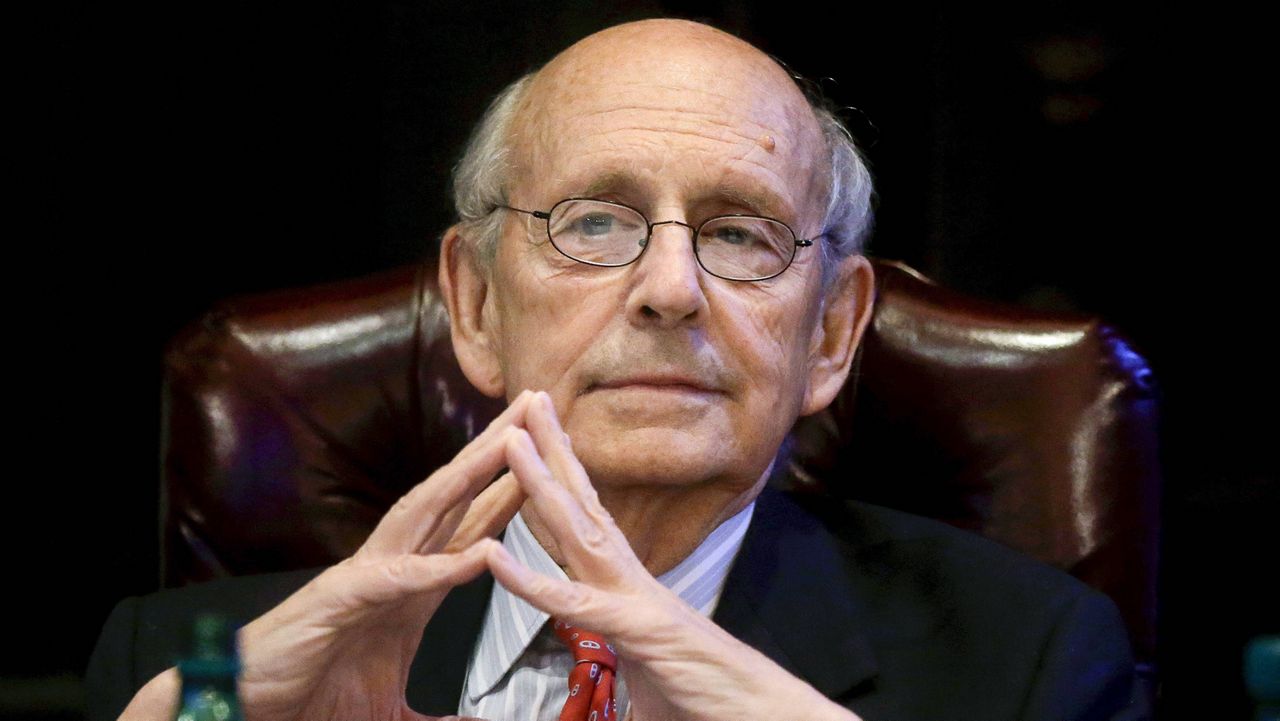Former Supreme Court Justice Stephen Breyer said he was open to the idea of term and age limits for Supreme Court justices, who currently enjoy lifetime appointments. Breyer argued such limits wouldn’t be “harmful” to the court and “would have helped him” avoid the politically and personally complicated decision to retire.
“I don't think that's harmful. I mean, if you had long terms, for example — they'd have to be long. Why long? Because I don't think you want someone who's appointed to the Supreme Court to be thinking about his next job,” Breyer said on NBC News’ “Meet the Press” on Sunday. “And so a 20-year term, I don't know, 18, long term? Fine. Fine. I don't think that would be harmful.”
“It would have avoided for me going through difficult decisions when you retire, ‘what's the right time?’ And so that would be okay,” he added.
The liberal justice, appointed by President Bill Clinton in 1994, stepped down in 2022 and was replaced by President Joe Biden’s nominee, Justice Kentaji Brown Jackson, one of his former clerks.
Breyer, now 85, said he decided to retire in part because of his age and “probably” because of the ideological balance of the court. Former President Donald Trump appointed three conservative justices to the court during his first term, tipping the balance 6-3 in the conservative’s favor. By retiring during Biden’s first term, he ensured his replacement would be picked by a Democrat.
The nation’s highest court is viewed less favorably than it has been in the last 20 years, according to Gallup polling. A February Marquette Law School poll found 60% of American adults disapprove of the Supreme Court’s job performance. Questions about the ethics of justices’ financial relationships with wealthy patrons and outside income, the unpopular Dobbs decision that overturned Roe v. Wade and the increasing partisanship of the court have coincided with that decline in approval.
According to a Pew Research Center poll last year, 74% of Americans support an age limit for Supreme Court justices.
Democrats in particular have been frustrated by the court’s conservative majority, as well as the decision of liberal Justice Ruth Bader Ginsburg to not retire during the Obama administration to ensure an ideologically similar replacement. Ginsburg died in 2020 and was replaced by Trump appointee Justice Amy Coney Barrett.
Last year, progressive Democrats in Congress proposed legislation that would expand the court and implement 18-year terms for justices to hear most cases. The bills have not gained traction in the Senate nor the House, but the concept of term limits continues to be discussed in Washington across the political spectrum. Avowed centrist Sen. Joe Manchin, D-W.v., said last week he wants 18-year term limits for the Supreme Court.
In the “Meet the Press” interview, Breyer declined to address most of the issues facing the present court, including the argument by Trump’s lawyers that presidents have total immunity from criminal prosecution and the potential consequences of the Dobbs decision.
“It's not that I don't have the answers for these things in my mind. But I want to stay away publicly,” Breyer said. “My interest is not to make news.”








